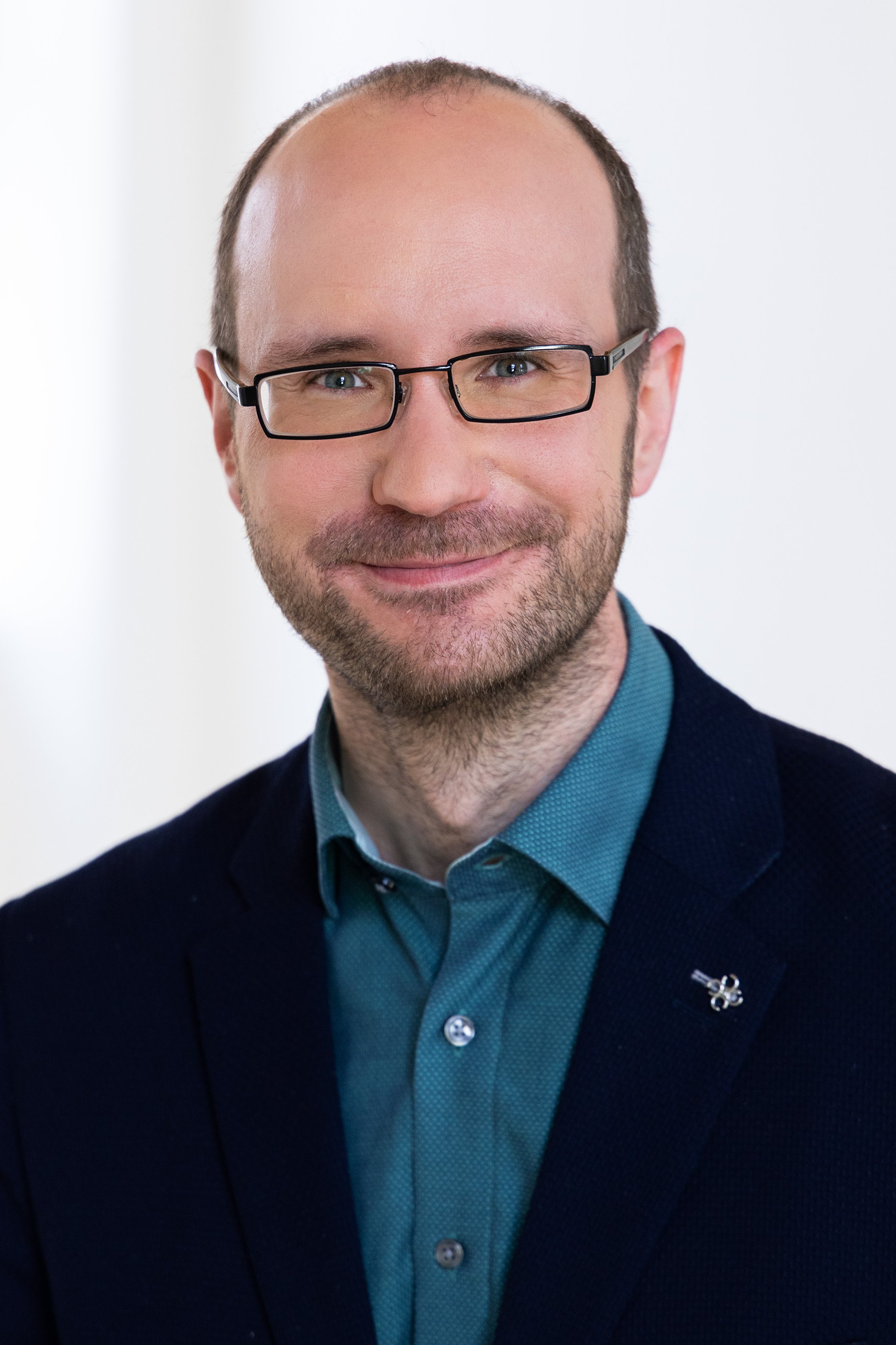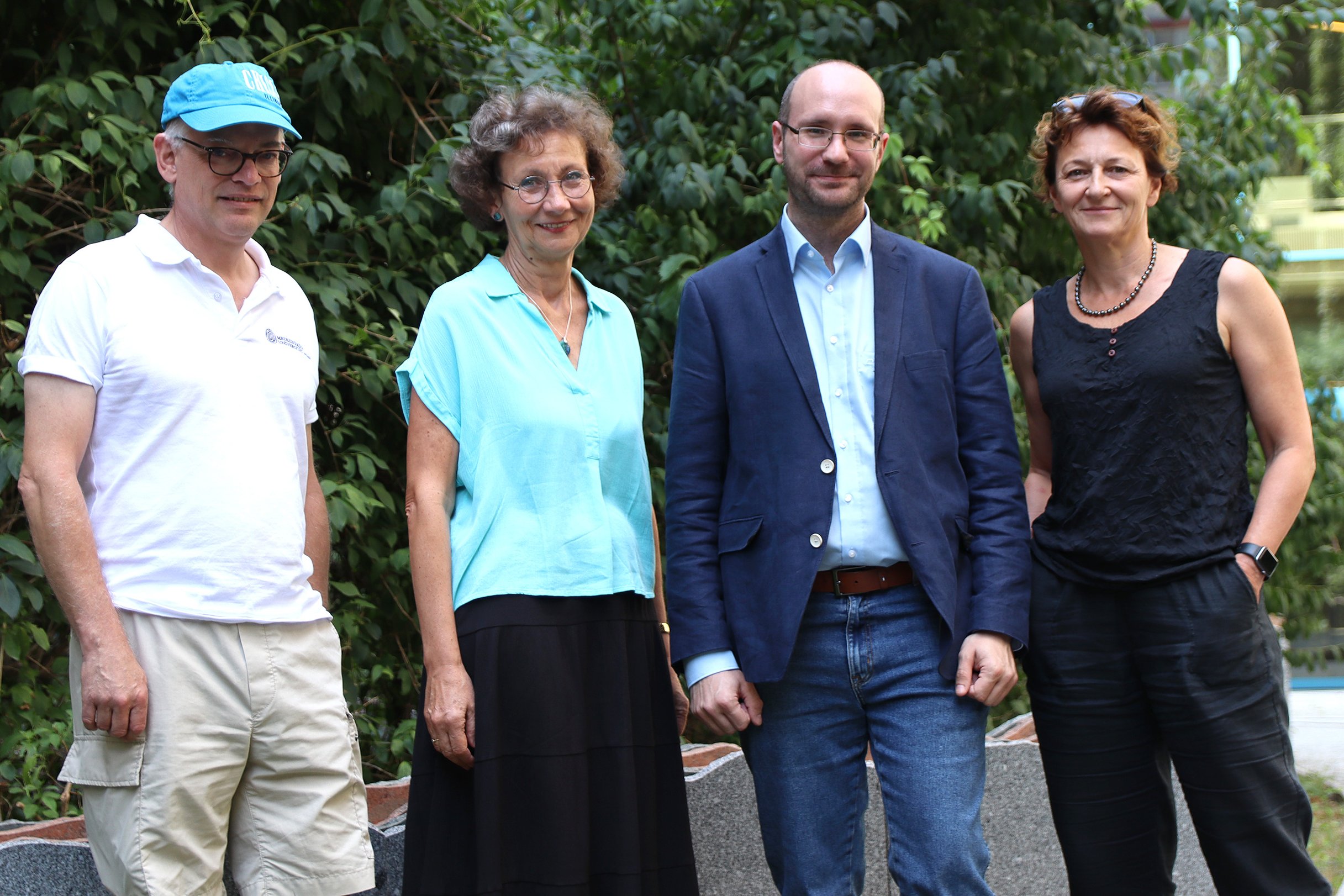
(Vienna, 19 July 2023) – Martin Schepelmann from the Institute of Pathophysiology and Allergy Research, Center for Pathophysiology, Infectiology, and Immunology of the Medical University of Vienna, has successfully acquired a grant from the EU to implement the Marie Sklodowska Curie Doctoral-Network ”eRaDicate” (Innovative Ligands for Nuclear Receptors to Eradicate Cancer Relapse), an international multi-disciplinary and inter-sectoral research and development programme. The project will train eleven young scientists to become specialists in cancer research and drug development, whilst developing new therapies against metastasis and relapse of cancer. The project is funded through the EU-Horizon-Europe Programme with a total budget of 2.5 million euros.
The international “eRaDicate” consortium includes the MedUni of Vienna, University of Wroclaw (Poland), University of Birmingham (United Kingdom), the Ben Gurion University of the Negev (Israel), Universidad de Santiago de Compostela (Spain), TissueGnostics GmbH (Austria), the University of Warsaw (Poland), the Medical University of Warsaw, and Trinity College Dublin (Ireland). Furthermore, 12 associated partners are involved, namely Biolution GmbH (Austria), Donaugrafik (Austria), Janssen Scientific Ireland UC (Ireland), the Karl Landsteiner University of Health Sciences (Austria), La Trobe University (Australia), Physiolution GmbH (Germany), Pikralida Sp. z. o.o. (Poland), Queensland University of Technology (Australia), Selvita S.A. (Poland), the Shaare Zedek Medical Center (Israel), and the University of Toronto (Canada), as well as Wannaboo S.r.l. (Italy).
The members of the MedUniVienna “eRaDicate” team are, besides the coordinator Martin Schepelmann, Lukas Kenner (Department of Pathology), Enikö Kallay and Isabella Ellinger (both from the Institute of Pathophysiology and Allergy Research).

The “eRaDicate” doctoral network (DN) is an international, multi- & interdisciplinary and inter-sectoral training, research and development programme in the field of cancer drug research. The educational aim of the network is to train eleven young scientists in cancer research and the development of new therapies against cancer-stem-cell-driven relapse and metastasis. The comprehensive training of the PhD students is the main focus of the project and includes not only the conducting of original and independent research at the highest international level, but also the nurturing of creativity and communication skills, as well as critical and entrepreneurial thinking. The innovative and multidisciplinary training will qualify the young scientists not only for an academic career, but also for working in industry and other relevant fields of employment.
The scientific objectives of the project are to test novel anti-cancer agents which target nuclear receptors, such as the retinoic acid receptor (RAR) and the vitamin D receptor (VDR), to develop innovative variants of these molecules, and to investigate the efficacy of different compounds against chemotherapy-induced neutropenia. In addition, strategies for the pre-formulation of active substances will be worked out, and a novel deep-learning-based method for cancer analysis and diagnosis will be developed. The long-term goal is to translate the developed active substances into marketable drugs.
About the Person
Martin Schepelmann is a group leader at the Institute for Pathophysiology and Allergy Research, Center for Pathopysiology, Infectiology, and Immunology.
After completing his studies in Pharmacy at the University of Vienna, Martin Schepelmann went abroad to pursue a PhD in Physiology at Cardiff University (UK) in the group of Prof. Daniela Riccardi as Marie Skłodowska-Curie Fellow in the Initial Training Network “Multifaceted CaSR”. After a further 3 years as postdoc in Cardiff (i.a. in the group of Prof. Andrea Brancale), Martin Schepelmann returned to Austria to take up a position as postdoc at the Institute for Pathophysiology and Allergy Research in the research group of Enikö Kallay. Since 2020, he leads his own research project on the effects of ageing in colon cancer models, funded by the Herzfelder Family Fund and the FWF. In June 2023, Martin Schepelmann successfully completed his Habilitation in Pathophysiology and started his own research group. Martin Schepelmann was awarded with many international and national prizes for his work, e.g. with the American Society for Bone and Mineral Research Young Investigator Award, twice in a row with the Science Prize of the Austrian Society for Endocrinology and Metabolism, and most recently as “Researcher of the Month” June 2023 of the Medical University of Vienna.
Due to his unique success story of Marie Skłodowska-Curie Fellow to Marie Skłodowska-Curie Coordinator, the European Commission has recently interviewed Martin Schepelmann on cancer and the impact of the Marie Skłodowska-Curie Actions. To the interview